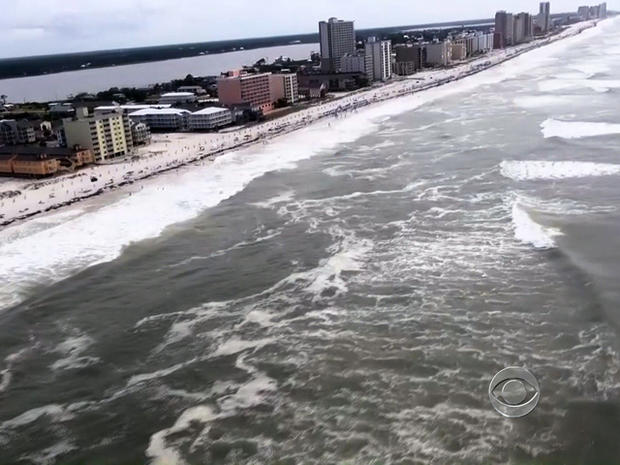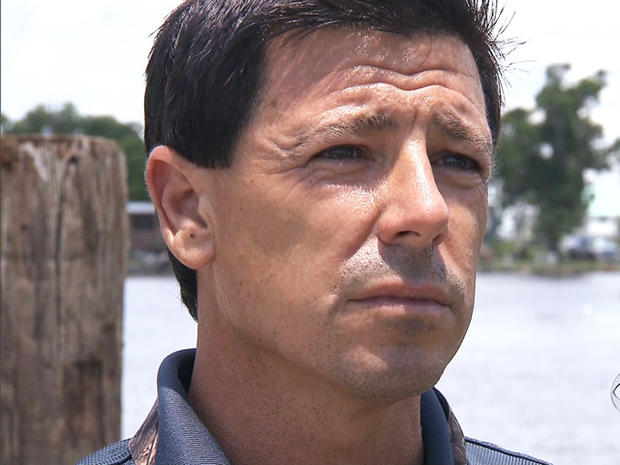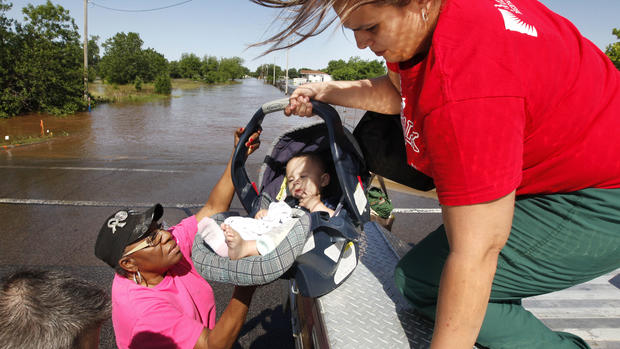Gulf of Mexico "dead zone" puts seafood industry at risk
(CBS News) DULAC, La. -- On the pristine beaches of Mississippi, thousands of dead fish, stingrays, crabs and shrimp have washed ashore this month. They died from a lack of oxygen in the coastal waters of the Gulf of Mexico.
It's called the "dead zone," and it appears every summer. This year's dead zone, though, is larger than average and more than twice the size of last year's.
"The alarming news is that it continues to be large year after year after year," says marine biologist Nancy Rabalais has measured the dead zone since 1985.
The primary cause of the dead zone is nitrogen-based fertilizers in Midwest fields that are washed down the Mississippi River by spring rains and in to the Gulf. There they create blooms of algae that rob the water of oxygen.
Scientists believe last year's drought has made the dead zone worse, as fertilizer that was never absorbed by crops was swept into the Gulf.
Report: "Ideal conditions" for toxic algae in Lake Erie
Once-parched Midwest now soaked by Spring floods
After drought, upper Midwest now too soggy to farm
In Dulac, La., David Chauvin worries about what that could do to his shrimp business.
"Shrimp are one of the most fragile creatures on the face of the earth," he says. "You take a shrimp and put them into a bucket with no oxygen whatsoever, they'll die within seconds. ... That could mimic a dead zone."
Watch: Farmer who struggled with drought now praying for rain to stop, below.
It's not just his business that's at risk. Seafood in this part of the Gulf is a $2 billion a year industry.
Five years ago, the states in the Mississippi River basin agreed to a plan for reducing the amount of nitrogen flowing into the Gulf, but it had little effect. Now environmental groups are suing the federal government, calling for standards that are enforced.
Chauvin says that right now, it doesn't sound like the government is "doing anything."
The dead zone usually lasts until late summer or early fall, when powerful storms churn the Gulf and put the oxygen back in the water, leaving people here wondering what's worse -- a dead zone or a hurricane.


